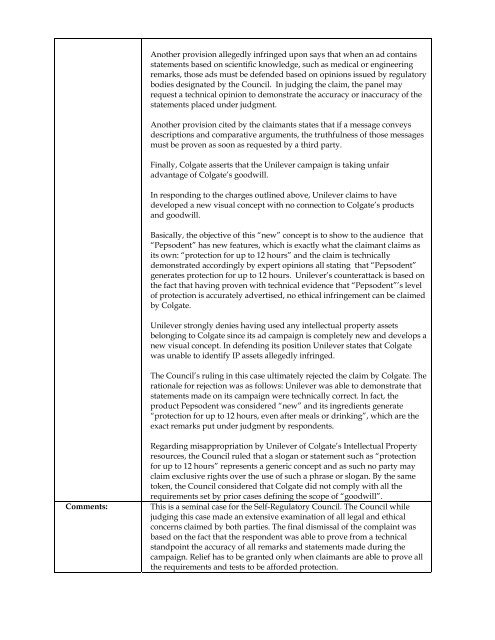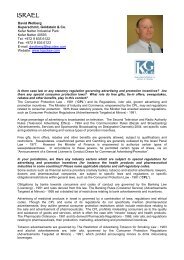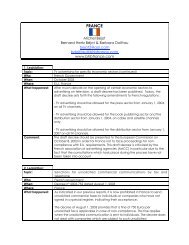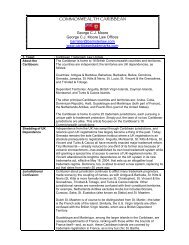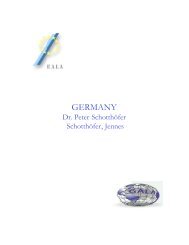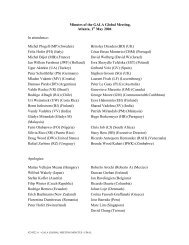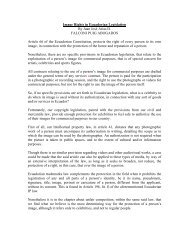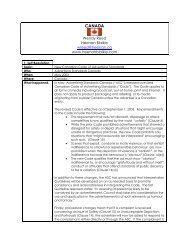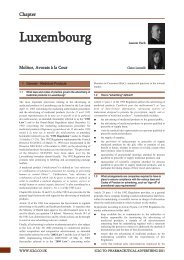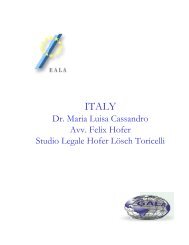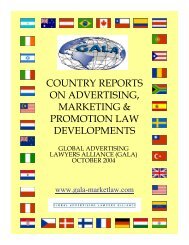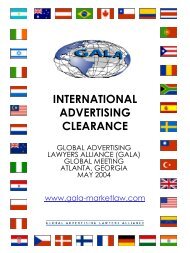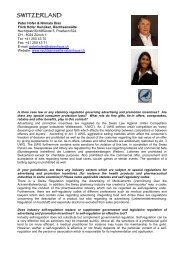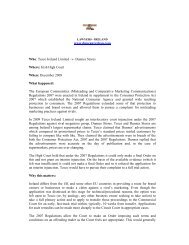list of contributors - GALA
list of contributors - GALA
list of contributors - GALA
You also want an ePaper? Increase the reach of your titles
YUMPU automatically turns print PDFs into web optimized ePapers that Google loves.
Another provision allegedly infringed upon says that when an ad contains<br />
statements based on scientific knowledge, such as medical or engineering<br />
remarks, those ads must be defended based on opinions issued by regulatory<br />
bodies designated by the Council. In judging the claim, the panel may<br />
request a technical opinion to demonstrate the accuracy or inaccuracy <strong>of</strong> the<br />
statements placed under judgment.<br />
Another provision cited by the claimants states that if a message conveys<br />
descriptions and comparative arguments, the truthfulness <strong>of</strong> those messages<br />
must be proven as soon as requested by a third party.<br />
Finally, Colgate asserts that the Unilever campaign is taking unfair<br />
advantage <strong>of</strong> Colgate’s goodwill.<br />
In responding to the charges outlined above, Unilever claims to have<br />
developed a new visual concept with no connection to Colgate’s products<br />
and goodwill.<br />
Basically, the objective <strong>of</strong> this “new” concept is to show to the audience that<br />
“Pepsodent” has new features, which is exactly what the claimant claims as<br />
its own: “protection for up to 12 hours” and the claim is technically<br />
demonstrated accordingly by expert opinions all stating that “Pepsodent”<br />
generates protection for up to 12 hours. Unilever’s counterattack is based on<br />
the fact that having proven with technical evidence that “Pepsodent”’s level<br />
<strong>of</strong> protection is accurately advertised, no ethical infringement can be claimed<br />
by Colgate.<br />
Unilever strongly denies having used any intellectual property assets<br />
belonging to Colgate since its ad campaign is completely new and develops a<br />
new visual concept. In defending its position Unilever states that Colgate<br />
was unable to identify IP assets allegedly infringed.<br />
The Council’s ruling in this case ultimately rejected the claim by Colgate. The<br />
rationale for rejection was as follows: Unilever was able to demonstrate that<br />
statements made on its campaign were technically correct. In fact, the<br />
product Pepsodent was considered “new” and its ingredients generate<br />
“protection for up to 12 hours, even after meals or drinking”, which are the<br />
exact remarks put under judgment by respondents.<br />
Regarding misappropriation by Unilever <strong>of</strong> Colgate’s Intellectual Property<br />
resources, the Council ruled that a slogan or statement such as “protection<br />
for up to 12 hours” represents a generic concept and as such no party may<br />
claim exclusive rights over the use <strong>of</strong> such a phrase or slogan. By the same<br />
token, the Council considered that Colgate did not comply with all the<br />
requirements set by prior cases defining the scope <strong>of</strong> “goodwill”.<br />
Comments: This is a seminal case for the Self-Regulatory Council. The Council while<br />
judging this case made an extensive examination <strong>of</strong> all legal and ethical<br />
concerns claimed by both parties. The final dismissal <strong>of</strong> the complaint was<br />
based on the fact that the respondent was able to prove from a technical<br />
standpoint the accuracy <strong>of</strong> all remarks and statements made during the<br />
campaign. Relief has to be granted only when claimants are able to prove all<br />
the requirements and tests to be afforded protection.


